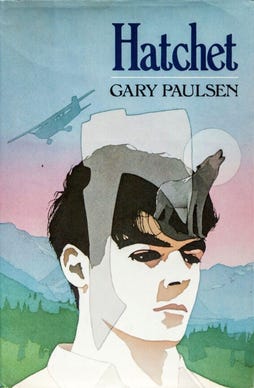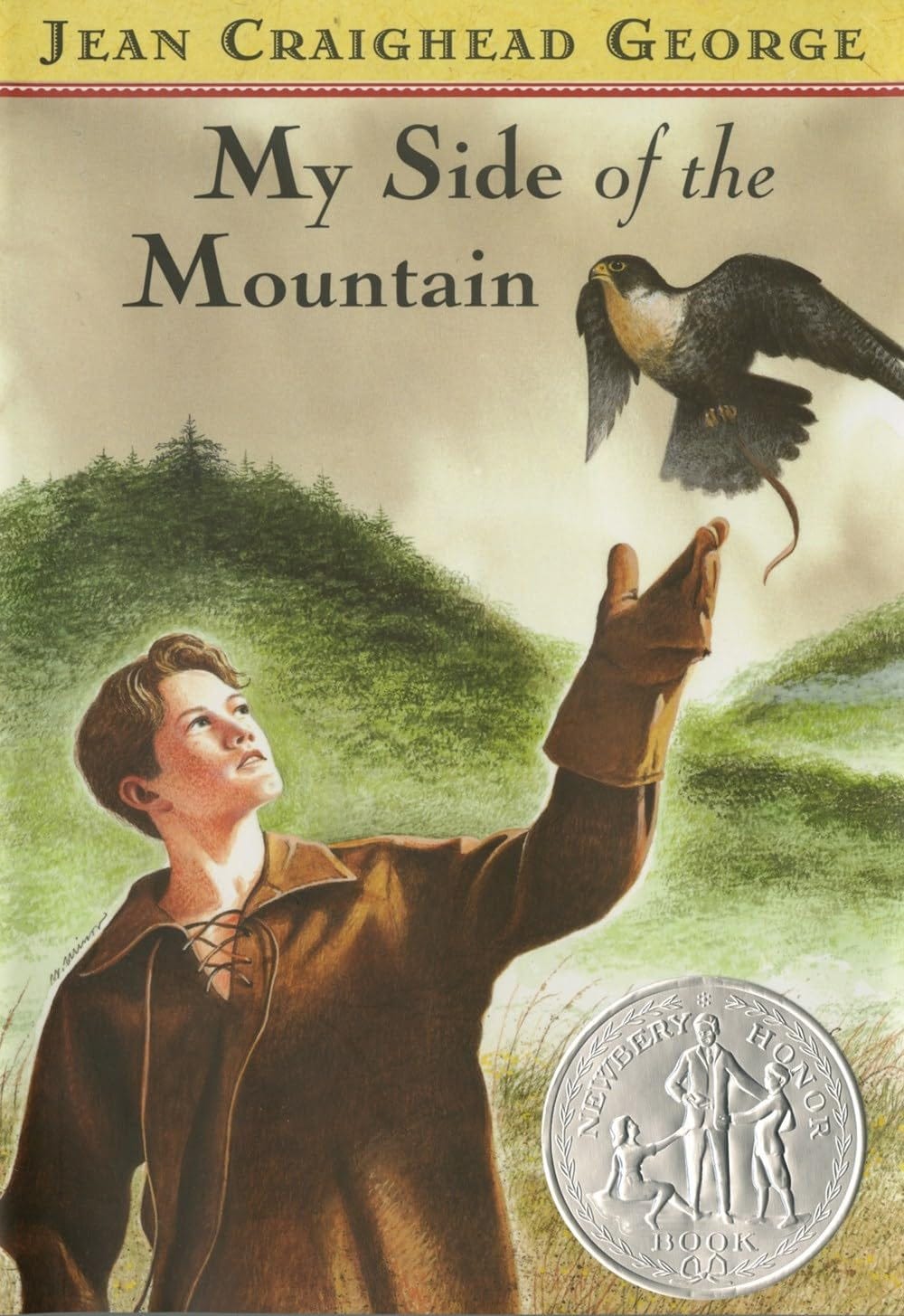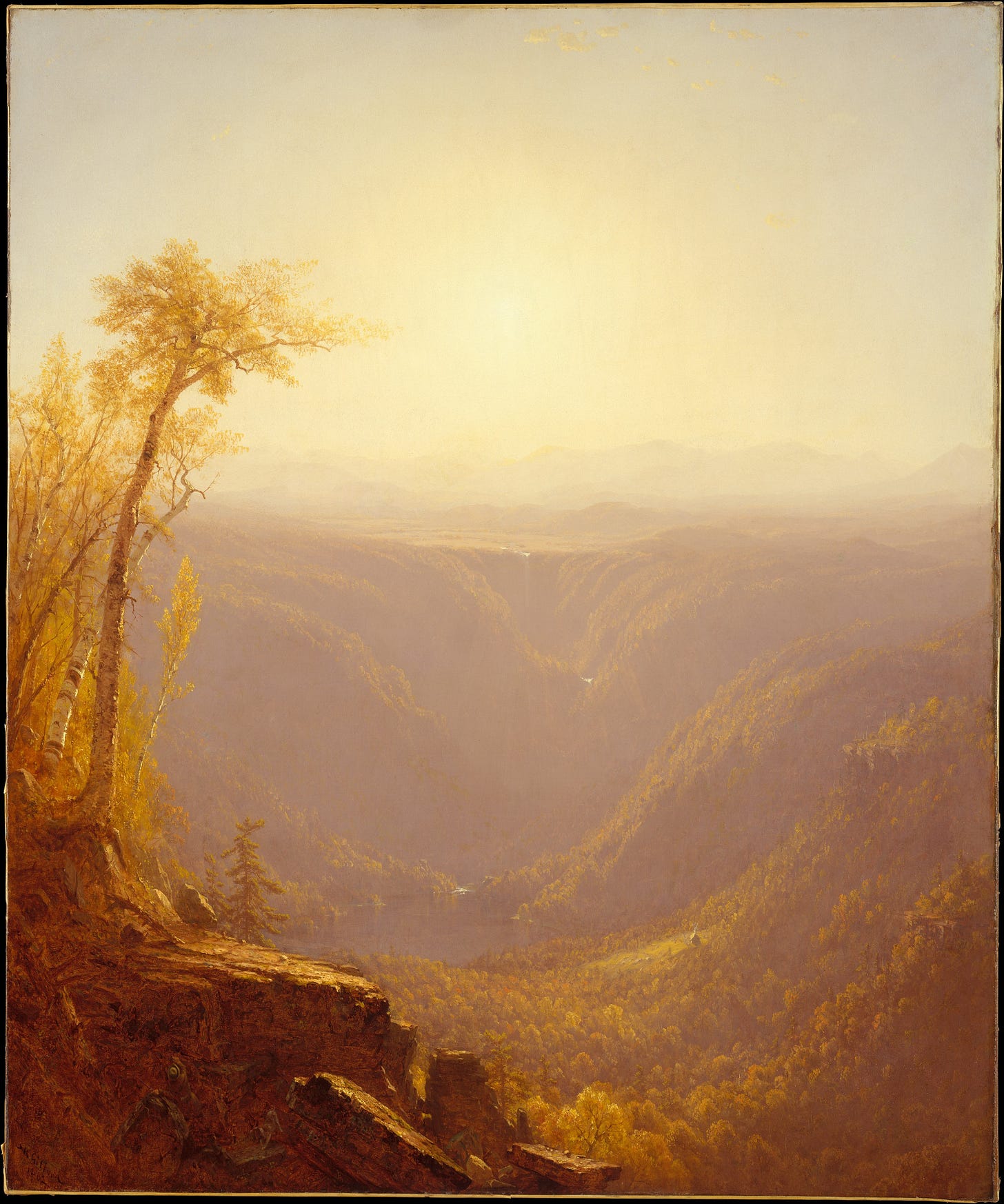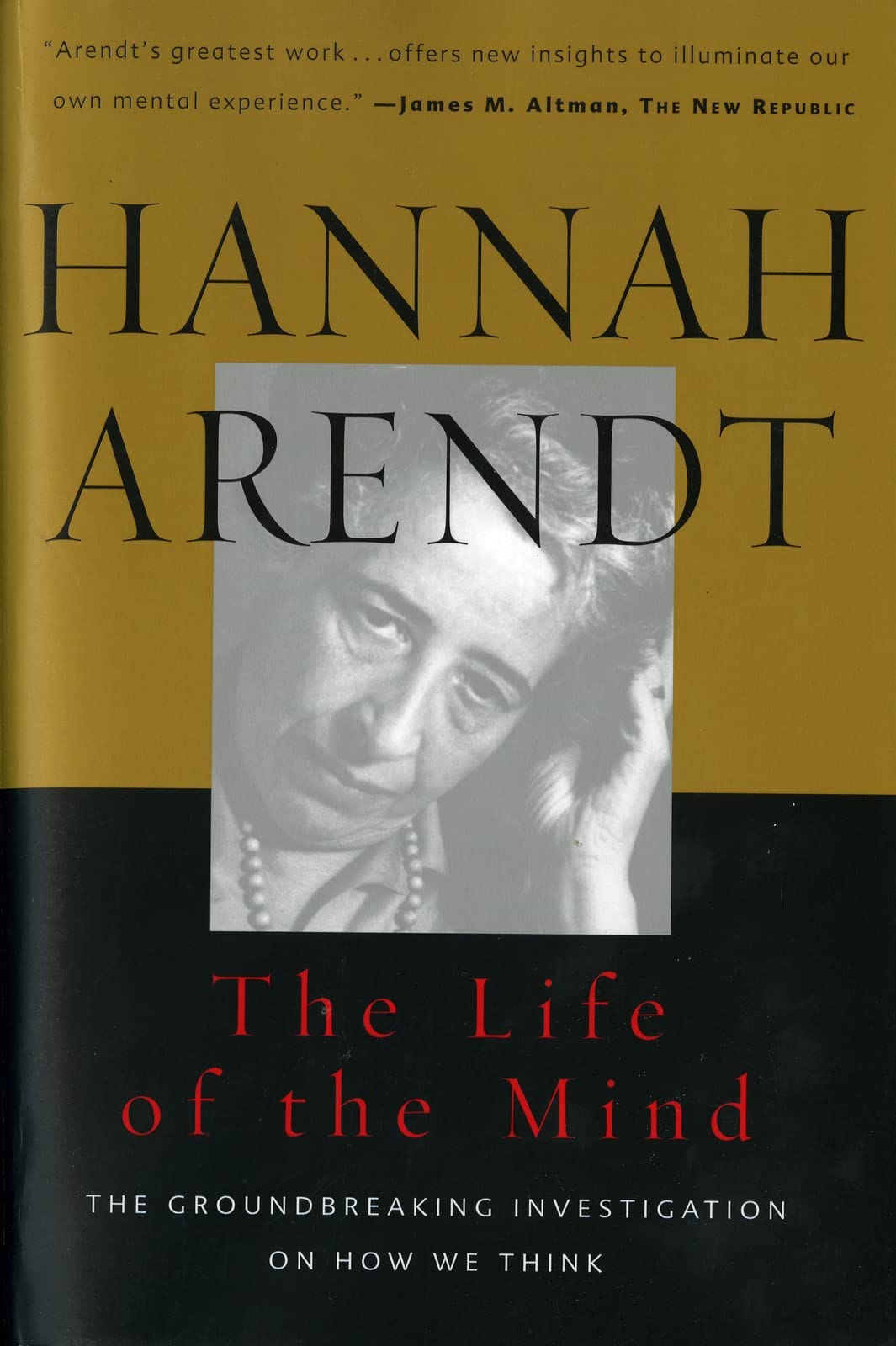Retreating from the World
A cabin the woods, boys' adventure novels, Hannah Arendt, the Inner Citadel
If I could move to a cabin in the woods, that would solve all of my problems.
I confess I have had that thought a few times — not just had it, in fact, but entertained it, invited it into the house, made it coffee, and really got to know what it had to say. I start to think that if I could pack my things – all the essentials, nothing else – and find a quiet place away from people, perhaps all of my problems would simply disappear.
I’m not alone in being tempted in this way. There is an entire sub-genre of YouTube videos dedicated to building your little cabin in the woods. They rack up millions, sometimes tens of millions of views. I think it is easy to see why: they offer, either implicitly or explicitly, a solution to all of your problems. It will involve hard work and a bit of money (though not as much as you might expect), but it is a solution.
Finally, you can escape from the world.
This genre is not new — it has just taken on a new form in the world of online media.
The most famous (infamous, perhaps) example in American literature is Henry David Thoreau’s Walden, a book that is routinely criticized for peddling a fantasy of self-reliance. (This criticism is undermined by actually reading the book.) Thoreau builds a home by a pond, away from the city. He begins the book:
When I wrote the following pages, or rather the bulk of them, I lived alone, in the woods, a mile from any neighbor, in a house which I had built myself, on the shore of Walden Pond, in Concord, Massachusetts, and earned my living by the labor of my hands only. I lived there two years and two months. At present I am a sojourner in civilized life again.
Thoreau chose to move away from the city – ‘a mile away from any neighbor’ – in order to give himself space. It is a very American sort of desire. The United States is vast, and even when you get around to remembering that there were people here before the settlers, you are struck by the fact that there is a lot of space. So, we start to think of living alone, away from the world.
I am reminded of the joke about Daniel Boone who, having moved out to Kentucky and found himself finally alone, exclaims: ‘Elbow room!’ It turns out this is some variation on a poem by Arthur Guiterman. A sampling:
Hunting the buffalo, elk, and deer.
What joy to see, what joy to win
So fair a land for his kith and kin,
Of streams unstained and woods unhewn!
" Elbow room! " laughed Daniel Boone.
As a young boy, some of my favorite books were variations on this theme. Hatchet is a story about a young boy, Brian, who relies on his wits and grit to survive after a plane crash leaves him stranded in the wilderness. At the end of the book, Brian is rescued. There’s a sequel, The River, but it seems readers didn’t like it much: they wanted to see what would happen to Brian in the winter, so Gary Paulsen began writing an alternate history for his own books, starting with Brian’s Winter. Brian’s Winter also ends with Brian being rescued, and readers still wanted to see Brian in the wilderness, so we eventually got another book, one where Brian returns to the wilderness willingly, called Brian’s Return. In that book, we read:
If he had to name the final straw that had done it, that had driven him away, driven him back, it would, he thought, have had to be the noise . ..
Brian is disgusted with the noise of the world. He tries to find ways to connect to nature, but they all seem hollow. Gun magazines disgust him. Talk of conquering nature seems perfectly wrong-headed. Nothing makes sense except for the land where he’d been forced to survive. He eventually gets in a fight at an arcade, and that initiates a series of events that take him back to the wilds.
I refamiliarized myself with these books this week, and I found that I had hallucinated something. I had a vivid memory of Brian, after first being rescued, going to a shopping mall, being overwhelmed, and fainting. Still, now, I can remember reading those pages and thinking there was something important in that message. I can’t find that, though, so I must have made it up.
It would have made a good ending, Mr. Paulsen.
For some reason, escaping into the wilderness and reading seem to go hand-in-hand.
In My Side of the Mountain, Jean Craighead George tells the story of Sam Gribley, who escapes his New York City life by running away to the Catskills, shacking up with a Peregrine falcon and a weasel, and making it on his own. He learns to survive first by going to the New York Public Library, and when he’s made his way into the mountains, he’ll sometimes make the trek to a nearby town to read some books. There’s even a professor of English literature who finds Sam–or Sam finds him – and learns the ways of the wilds.
Thoreau makes the connection between retreating from the world and reading as well:
My residence was more favorable, not only to thought, but to serious reading, than a university; and though I was beyond the range of the ordinary circulating library, I had more than ever come within the influence of those books which circulate round the world, whose sentences were first written on bark, and are now merely copied from time to time on to linen paper.
Thoreau goes out to the pond, leaves (mostly) by himself for two years, and finds that he can still explore the world through his reading.
This theme of retreating from the world and its relation to thinking is explored in significant depth in Hannah Arendt’s final book, The Life of the Mind. That book may be summarized as Arendt’s attempt to answer the question ‘What are we doing when we are thinking?’
One answer: we are retreating from the world. The world is a world of appearance, she says, where Being and Appearing always coincide. But ‘Properly speaking, [mental activities] never appear,’ Arendt says, ‘though they manifest themselves to the thinking, willing, or judging ego, which is aware of being active.’ Mental activities are distinct from the rest of the world. Mental activities thus provide human beings, in contrast to other animal species, an opportunity.
Namely, we have an opportunity to withdraw from the world. But there are two distinct claims here we might want to tease apart. First, thinking gives us the opportunity to withdraw from the world, and second, that thinking requires that we withdraw. These are related, but they are distinct.
Pythagoras describes those who live the life of the mind as spectators in the festival of life who go hunting for truth, while others go hunting for fame or gain. They seem to be first withdrawing and then thinking. Marcus Aurelius, on the other hand, describes the inner citadel where a true philosopher can retreat to at any time. Marcus seems to think that the act of thinking constitutes the withdrawal. In fact, at one point in the Meditations, he claims that a desire to go somewhere physical so that one can find peace is unphilosophical.
Marcus Aurelius’ contention that one could withdraw to the inner citadel at any time has not been borne out by my own experience. The world gets in the way. While I wish I could be like Boethius, attended to by Lady Philosophy in a prison cell and able to find peace, it does not seem to work that way. Thinking – and indeed the life of the mind – seems to require that we structure our lives in a particular way. We have to find a way to escape the noise.
But let’s be honest with ourselves: most of us will not go and build a cabin in the woods. And for many of us, watching a video about building a cabin in the woods is indulging in a dangerous fantasy — not because actually carrying out the fantasy would be dangerous, but because it allows to think that the solutions to all of our problems can only be found by taking such drastic measures.
Yet, Socrates did philosophy in the city. Arendt wrote her books while living in New York. Thoreau eventually became ‘a sojourner in civilized life again.’ They found a way to withdraw from the world while still managing to live in it.
These strategies are likely quite boring. You carve out some time to read, to write, to have real conversations. As Sertillanges puts it in The Intellectual Life, you find two hours per day and jealously guard them.
No cabin in the woods required.






"I built my cottage in the realm of men,
and yet there's no clamor of carriages or horses.
How, you ask, can it be so?
When the mind is detached, one's place becomes remote.
I pick chrysanthemums by the eastern hedge,
catch sight of the southern mountain in the distance."
Tao Yuanming (365-427)
This reminds me of my desire to leave digital spaces like social media. I think to myself, “if I quit instagram/tiktok/reddit all of my problems will be solved, the noise will be gone, and I can finally do the thinking that needs to be done!” While I still think that reducing the time we spend in digital spaces is part of the answer to living the good life, I also think that withdrawing from the world doesn’t bring any real lasting peace.